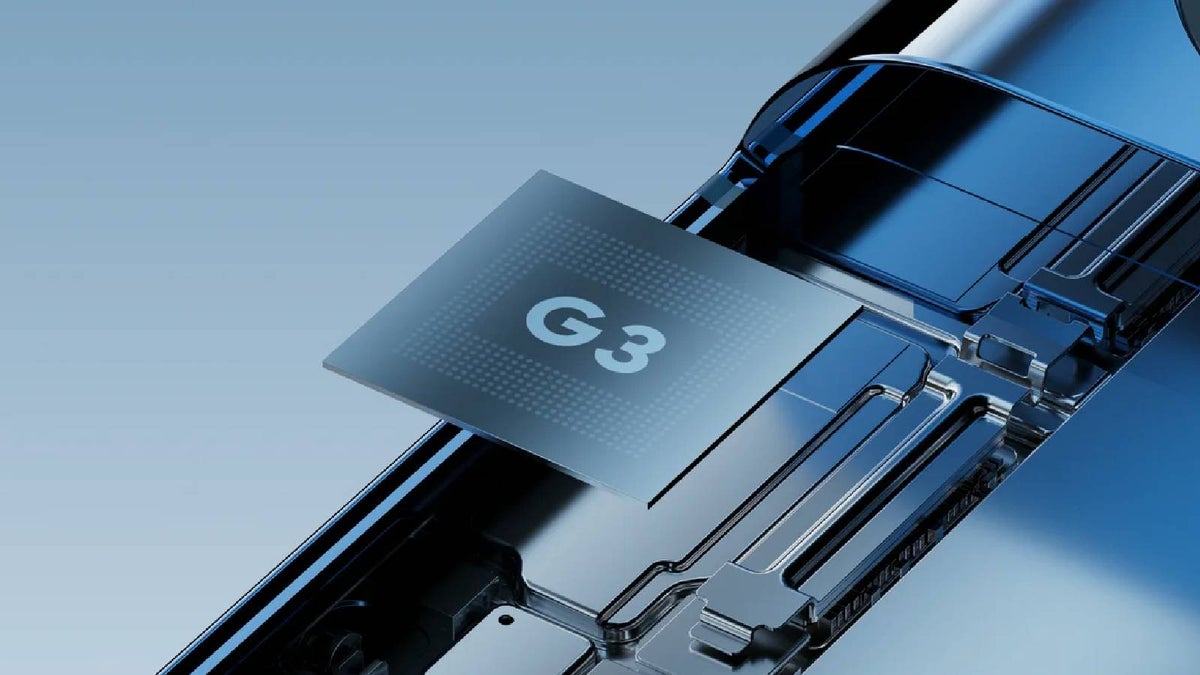Pixel 8 handing bulk of AI work to Google's servers as Tensor G3 not capable enough apparently

In a world where many things are fake and pretentious, Google's new Pixel 8 and 8 Pro give you the tools you need to stand out. While your friend with an Apple iPhone or a Samsung Galaxy might be able to edit their pictures, Google's latest phones go a step further by letting you tinker with things such as capturing a group photo that doesn't accurately depict the actual moment. It might be impressive from a technological point of view, but it does sound a little creepy. But that's beside the point.
Google's claims about Pixel 8's on-device generative AI sound very impressive
This year has been all about AI. But as cool as this AI stuff may sound, it needs a lot of resources. As an example, some experts believe that it costs $100,000 per day to run ChatGPT.
You might be wondering why ChatGPT is so expensive to run. Well, it's because it needs a lot of computing power. On top of that, they got to pay the researchers and developers. And, of course, there's also the data storage cost.
But this post is not about ChatGPT. It's about Google's amazing Tensor G3 which the company claims "brings the latest in AI to the Pixel 8 and Pixel 8 Pro."
As Google notes in a blog post, most AI innovations rely on processing power only available in data centers. But the Tensor G3 is different, according to the company. It brings AI to the Pixel 8 and 8 Pro. The company does acknowledge that on-device generative AI is very complex though.
But Google was somehow able to bring it to the Pixel 8, including the text-to-speech model used in Google's data centers. Some of the features that have benefitted from this are only available in the US for now.
The machine learning algorithms also make the cameras better, letting the phones do stuff such as taking a series of photos, selecting the best shot for each subject individually, and creating a group photo (Best Take). Google says it uses on-device algorithms to achieve this.
Another AI feature is Magic Editor, which lets you resize and reposition subjects with "just a few taps." There's also the Audio Magic Eraser feature that removes distracting sounds such as background noise from your video.
Most of the AI magic is happening far away from your phone apparently

Google may have overstated the capabilities of the Tensor G3, according to YouTuber Mrwhosetheboss. He has noticed that every AI-based feature needs an internet connection. That's because it seems that the Pixel 8's chip is not powerful (or smart) enough to do all the aforementioned tasks and needs to send them to Google's servers for completion.
In the case of Magic Editor, an image will first have to be saved to your Google account before it's processed.
That's not the picture Google painted and not everyone would be okay with their images getting sent to Google for processing. And even if you are willing to put up with that, Mrwhosetheboss says that the process is not as seamless as Google portrayed it, and erasing elements and moving stuff around takes a long time. The phones sometimes struggle to identify objects and in some cases, you get an error that Magic Editor can't show the results you want because that might violate its terms.
Even with all the lags and delays, it's evident that Google put a lot of hard work into these editing features but the bulk of the work seems to happening off-device. Mrwhosetheboss has compared the experience to using an AI website on your phone.
The slowdowns also make you realize that the Tensor G3 is not as powerful as the chips that power other top phones of 2023. During our review, we found that the iPhone 15 Pro Max and Samsung Galaxy S23 Ultra are significantly more powerful than the Pixel 8 Pro, at least as far as benchmark scores are concerned.
Mrwhosetheboss has compared it to the iPhone 12 and says that tasks that haven't been optimized feel slower than they would on a competing device. And despite not being anywhere as fast as competing phones, the Pixel 8 doesn't seem to be as efficient as Google implied it was and it doesn't take much to make it heat up and slow down.
Hopefully, the phones will get better with time.
Follow us on Google News













Things that are NOT allowed:
To help keep our community safe and free from spam, we apply temporary limits to newly created accounts: